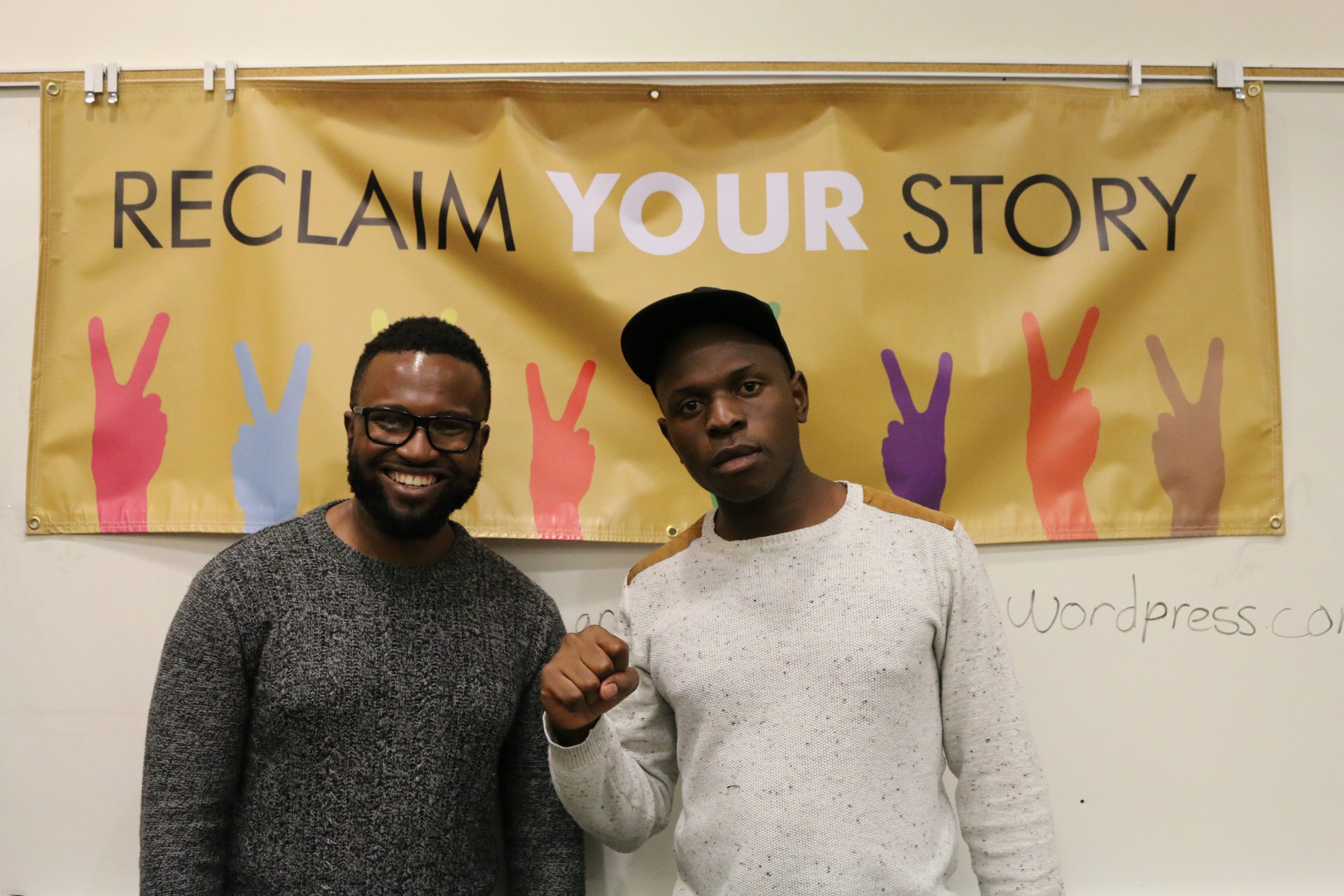
South African university students Klaas Manilo and Jamie Mighti tour the U.S. to discuss conflict and resolution
By ALTHEA BILLINGS///Features Editor
The founders of the burgeoning movement Africans for Peace visited campus on March 31 in hopes of facilitating conversation about peace at a campus level.
Jamie Mighti and Klaas Masilo created the organization to formalize their frequent debates on the library lawn at the University of Witwatersrand.
“We try to facilitate at a campus level because we are all university students or just newly minted university graduates. We try to have discussions on how to solve and resolve conflicts,” Mighti said.
“We realized there were a number of people out there who were misinformed, and they end up taking radical stances,” Masilo said. “In my country, the young people are the ones who make the government. We campaign for them, we vote more than any other [group]. I want to involve young people because they want a future that is beneficial for everyone.”
These activists were brought to campus by Hillel and Stand With Us, a non-profit organization dedicated to informing the public about the “Arab-Israeli conflict” and combating anti-Semitism.
The organization is oriented towards peace in all arenas, but this means emphasis on different topics depending on where the group travels. In the United States, they discuss Israel-Palestine and ISIS.
“That’s what occupies the New York Times readership, so you can discuss it more accessibly than Mali or DRC or North and South Sudan, which is what predominantly occupies us when we are in those African spaces,” Mighti said.
Mighti and Masilo are proponents of the South African model of brokered peace. The end of the apartheid was bloody, and the competing factions had trouble even getting to the table. But peace was reached, through the Convention For A Democratic South Africa (CODESA), which Mighti attributes to the “terms of reference” and constitutional principles agreed to by both sides before debate began.
“The South African model in the early ’90s was particularly useful to creating a stable democracy, with maybe an uncomfortable peace, but a peace nonetheless. I think that sometimes people forget that the alternative to peace is sometimes much worse than a negotiated peace,” Mighti said.
The process was not without its difficulties. The first CODESA broke down in negotiations, and it wasn’t until the second CODESA a few months later, that the constitution for the new post-apartheid South Africa was hammered out.
“There was a lot of tension because there were some parts of South Africa that wanted to become their own states; the Zulu nation wanted that, and there was actually a large wave of violence in South Africa in the early ‘90s just based on the Zulu conflict with the rest of the country,” Mighti said. “There were mass killings and it got a little ugly but it was nipped in the bud, by the CODESA process, because even they had to come to the table.”
Nelson Mandela was a leader in this movement, and certainly occupies a beloved place in our collective imagination as someone who loved and strove for peace. But as Mighti explains, this was not always the case.
“In his early days he used terror tactics to get his point across. He bombed an electric power plant to try to achieve freedom. But now that he was liberated, freed from prison, he took a different tact. The only way we’re going to achieve peace in South Africa is through negotiation, and honest discussions with people who have been oppressing us,” Mighti said. “Forgiveness is a higher ideal for nation building … It’s difficult, but if we are going to build a state, this is perhaps the best way to do it.”
In regards to the Israel-Palestine conflict and others, Mighti sees the model from his home country as having utility in other places. Finding “terms of reference” and uniting principles from the beginning worked for South Africa, which has one of the most progressive constitutions in the world.
No matter the location of their travels or the subject of their discussions, Africans for Peace seeks to educate the uninformed and involve people across the globe.
“Even if we don’t resolve much, we must try by all means to educate people,” Masilo said. ”The number of people engaged in this thing, those people are the ones who go out and advocate for peace out there.”
Subscribe to the Mossy Log Newsletter
Stay up to date with the goings-on at Lewis & Clark! Get the top stories or your favorite section delivered to your inbox whenever we release a new issue.

Leave a Reply